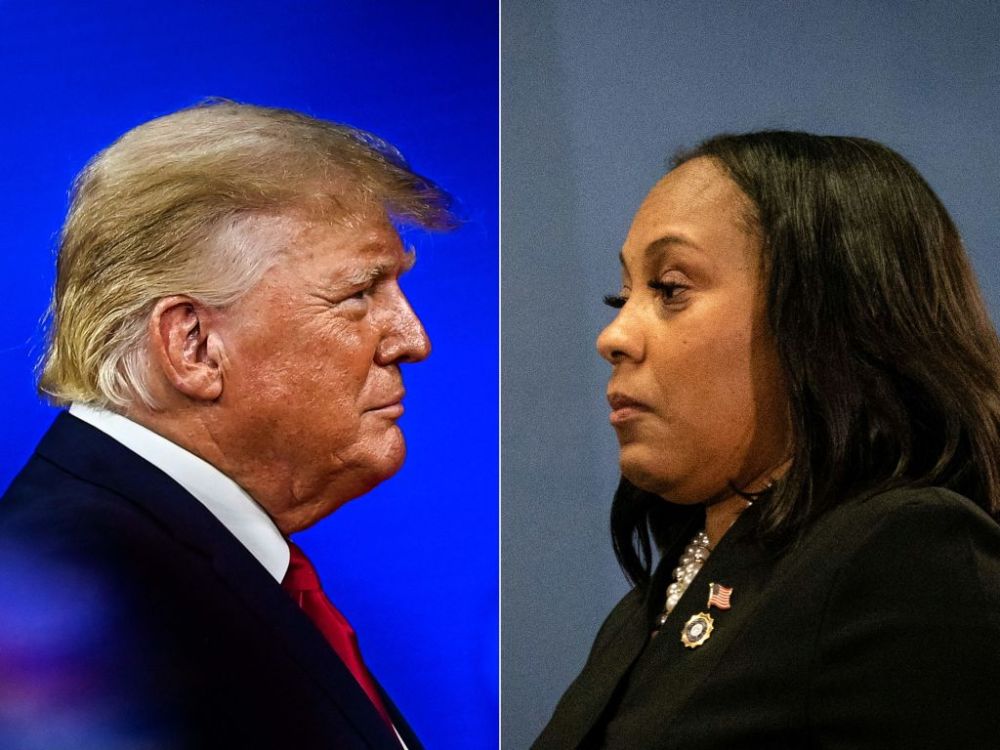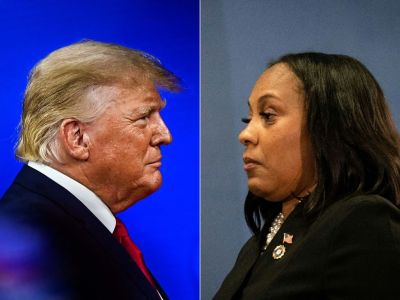Welcome back to The Collision! Quite a bit has happened since our last issue. No, Sarah hasn’t had her baby, but I’ll be helming the newsletter solo as she gets ready for the new addition to her family—and for a little while afterward.
First, let’s get up to speed on the many developments in Donald Trump’s legal saga, via a new feature we’re trying out.
The Docket
- March 4, 2024: That’s the date set by Judge Tanya Chutkan to start the trial in the federal case about Trump’s efforts to overturn the election. While other proposed trial dates are subject to change given likely pretrial motions, this one is the first solid trial date for any of the former president’s four indictments. It’s a couple months after special counsel Jack Smith’s preference for January, but Judge Chutkan seemed to have had no interest in the Trump legal team’s request to push the trial to 2026.
- March 5, 2024: That’s the date of Super Tuesday, the biggest slate of same-day nominating contests and the first and best chance for Republican presidential candidates to scoop up a chunk of delegates in one fell swoop. How could the trial starting the day before GOP voters go to the polls in California, Texas, North Carolina, and a dozen other states affect the race? So much depends on factors we don’t yet know, but Trump’s rivals for the nomination don’t sound particularly jazzed about the schedule. One top adviser to another Republican presidential candidate told The Dispatch this week they believe the trial will give Trump an additional boost at exactly the wrong time. That’s if Trump—currently averaging nearly 54 percent support in national polls of primary voters—even needs any more of a “boost” at that point.
- And in Georgia, we got a glimpse this week of what Trump and his co-defendants may be arguing in the coming weeks: Fani Willis’ racketeering case should be tried in federal court. Former White House chief of staff Mark Meadows testified in front of a federal judge in Atlanta on Monday as part of his motion to remove his indictment from Fulton County to the federal district court. Meadows testified that he believed his actions following the 2020 election were within the scope of his White House position as a member of the federal executive branch.
- The prosecution, meanwhile, called Georgia Secretary of State Brad Raffensperger, who testified that he avoided answering Meadows’ post-election calls because he perceived them as campaign-related rather than official executive branch business. Raffensperger also characterized the famous January 2 call from Trump as a “campaign call”—all to emphasize that Trump and his White House staff were acting as private citizens, not executive branch officials. The judge has not yet made a decision on transferring the case.
- Meanwhile, a federal judge ruled Wednesday that Rudy Giuliani is legally liable and owes punitive damages to two Georgia election workers who were the subject of conspiracy theories after the 2020 election. Ruby Freeman and Shaye Moss sued Giuliani for defamation in 2021 after the former New York mayor and Trump attorney spread attacks about them. A jury will determine how much Giuliani owes them in damages.
- On the other side of things, the New York Post reported late last week that a lawyer on Jack Smith’s team met with members of Biden’s White House counsel’s office “just weeks” before the special counsel first brought charges against Trump. “Jay Bratt, who joined the special counsel team in November 2022, shortly after it was formed, took a meeting in the White House on March 31, 2023, with Caroline Saba, deputy chief of staff for the White House counsel’s office, White House visitor logs show,” the Post reported, adding that Bratt had two previous meetings at the White House in 2021.
A Strategy of Delay
We should stick with the Peach State for a bit this week, since the Meadows hearing—the first since the Fulton County indictment was unveiled earlier this month—had me asking: What’s coming next in Georgia? I talked with some Georgia-based defense attorneys this week who outlined in broad terms what Trump will try to do next in this racketeering case, and it all comes back to one goal: delay, delay, delay until after the 2024 election, when he will (in his mind) be president and untouchable by prosecution.
The first step for the former president will likely be to petition for removal from the Fulton County Superior Court to federal court, just as Meadows is already trying to do. If the federal judge grants Meadows’ request, that decision could possibly remove the entire case from the Fulton County court to the federal district court and make it unnecessary for Trump to ask for removal himself.
The attorneys in Georgia I spoke with came to different conclusions on how likely an outcome that is, but they both agreed such a motion will be key to Trump’s defense strategy. If Meadows (or possibly Jeffrey Clark, the former Justice Department official who has also filed for removal) can successfully transfer the whole case to federal court, the former president will have a small victory without lifting a finger. A move to federal court would take away Fulton County DA Fani Willis’ built-in “home-court” advantage and give Trump’s team a little more flexibility with filing motions to delay the trial.*
Even if Meadows, Clark, and others are denied, Trump’s team will still almost certainly file for the same removal along the same grounds anyway: as a federal official exercising his federal duties when the alleged crimes occurred, they’ll argue, Trump has the right to be tried in federal court.
If Trump does get his case removed, the next steps from his team will look much like they do in his federal cases: filing every relevant pretrial motion possible in order to slow things down. If the case remains at the Fulton County Superior Court, it will be governed by Georgia’s rules, which have a pretty strict window for filing pretrial motions, 10 days after arraignment. Trump was scheduled to be arraigned on September 6, but on Thursday morning he entered a “not guilty” plea and will waive the in-person arraignment, according to the Atlanta Journal-Constitution. With that plea filed, we might see a rapid fire of motions and special pleas in the next several days—all of which would certainly delay Trump’s trial well past Willis’ proposed October 23 start date.
The bottom line: If Trump wants to delay his Fulton County case—which he absolutely does—he has options. And with the March 4 case in D.C. looming, the possibility that Willis will get her trial before the primary season gets going in earnest is looking less and less certain.
What Upcoming Hearings Will Tell Us
One more thing about this whole dispute over the role Trump and his associates were playing during the time they committed their alleged crimes—were they representatives of the federal executive branch or private citizens working on behalf of a presidential campaign? Therein lies the central issue driving not just the question of venue for this trial—which is, in the end, a relatively small matter—but the substance of the case itself.
How the removal petitions are resolved won’t determine how a jury will decide those questions. But the Meadows hearing this week gives us a good sense of how the defense is likely to argue in trial, no matter the venue. Not only did Trump believe the certified election outcome in Georgia was incorrect, the argument goes, but that he was taking action as president to ensure the election had been conducted properly. Should a president, they may ask, be prosecuted simply for urging state officials to make sure they had done all they could to ensure the election was fairly executed?
Willis’ challenge will be to successfully convince a jury that this innocent explanation from Trump is bogus. Trump and his team of lawyers and advisers were not conducting due diligence under a genuinely held belief, she’ll say—as she already has—but they were instead lying as part of a conspiracy to steal an election.
Both sides will have a chance to try out these arguments in hearings over the next few weeks. What are the limits to a president’s ability to put political pressure on other officials? When does politicking cross the line into criminal activity? How can a president be held accountable for violating state laws?
The questions of Trump’s position go to the heart of the case and underscore what makes this entire scenario so odd, messy, and unprecedented. Buckle up.
Correction, August 31, 2023: If Trump is successful in removing his case to federal court, it would likely go to the Northern District of Georgia, not Washington, D.C.







Please note that we at The Dispatch hold ourselves, our work, and our commenters to a higher standard than other places on the internet. We welcome comments that foster genuine debate or discussion—including comments critical of us or our work—but responses that include ad hominem attacks on fellow Dispatch members or are intended to stoke fear and anger may be moderated.
With your membership, you only have the ability to comment on The Morning Dispatch articles. Consider upgrading to join the conversation everywhere.